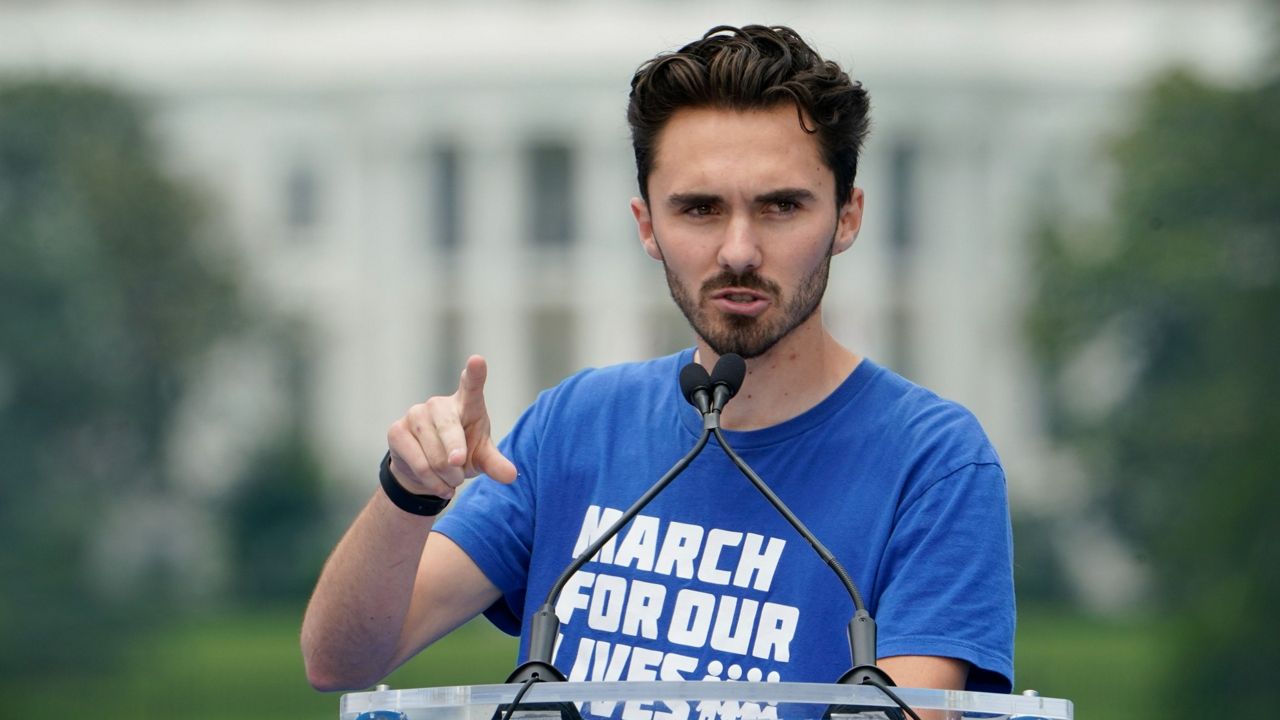With election day less than six months away, President Joe Biden is hitting the campaign trail, and his campaign says he’s not taking a single vote for granted.
That includes Black voters, who, according to polling, have shown waning support for the man that they overwhelmingly sent to the White House four years ago.
“Instead of a trail of broken promises, we’re investing more money than ever in Black families and Black communities,” said Biden in a commencement speech at Morehouse College in Atlanta over the weekend.
“We’re reconnecting Black neighborhoods cut off by old highways and decades of disinvestment where no one cared about the community. We’ve delivered checks in pockets to reduce child — Black child poverty to the lowest rate in history.”
But most Americans aren’t feeling the benefits, according to Pastor Hurley Coleman, Jr., a Michigan resident who supports Biden, and whose son and grandson met with the president on a visit to the state last year. While Hurley says he plans to continue supporting Biden over Trump, he gave this explanation as to why voters are wavering in their support.
“Even though the unemployment level is low, there are still people unemployed and many people underemployed,” said Coleman, Jr. “Affordable housing is still an issue throughout the country, even though people are having access to educational opportunities, there are still people who are falling through the cracks in the educational pursuit.”
A New York Times/Philadelphia Inquirer/Sienna College poll released last week found former President Donald Trump winning more than 20% of Black votes in key battleground states in a head-to-head matchup with Biden. Back in 2020, Trump won approximately 1 in 10 Black voters nationally. Though Biden is still winning the vast majority of Black voters, the waning support has some backers concerned.
Rep. Sydney Kamlager-Dove, D-Calif., believes it’s a messaging problem.
“I had a number of constituents call and say, ‘oh my God, I just got my student debt relieved, forgiven. Who did this?’ I said Joe Biden," she said. "So then we also had to go back to the administration and say, 'Hey, how do we tweak this messaging so that people really know that it was because of your efforts that their student loan has been forgiven?'"
“We all have a collective duty to go out into our districts and across the country and show the receipts of this administration as it relates to Black voters and the issues that Black voters care about,” she added, saying she plans to “be out in about in my district from now through November showing receipts.”
Kamlager-Dove pointed out the Biden administration’s investments in Black entrepreneurship and Black-owned businesses, investments in historically Black colleges and universities, and the increase in Black wealth in the last few years.
She also took a swipe at Trump, telling Spectrum News the former President “does not care about Black people.”
“One of the things that [Trump] said was that…’I'm being called a criminal and I'm being charged, you know, with all of these crimes with Black people, you should be supporting me because you two, you get charged with crimes all the time. I mean how dehumanizing and debasing is that?’” questioned Kamlager-Dove.
Republicans have taken up the oft-used election refrain “are you better off than four years ago” when attacking Biden, citing inflation, his border policies, and other popular talking points.
But Rep. Barbara Lee, D-Calif., says life is far better now.
“When President Biden and Vice President Kamala Harris became president and vice president, people were dying of COVID,” Lee said. “Do you remember the thousands of people every day dying of COVID? And so I tell people, ‘you're alive, aren't you?’ I mean, they did a phenomenal job in getting this pandemic that was killing Black and brown people disproportionately under control.”
Lee said she and other surrogates bear some of the responsibility to help voters in their districts make connections between policies impacting their everyday life and the Biden administration’s role in it.
“Sometimes you don't see the connection between a policy or a president in your daily lives. And I think we have to connect their daily lives more so to the decisions or lack of decisions that have been made,” said Lee. “When you look at the fact that Donald Trump won, you look at the fact that now in many states, reproductive freedom, the right to an abortion has been taken away. Why is it? Because Donald Trump was elected, he appointed three Supreme Court justices, they took away our constitutional right to an abortion – that was a direct relationship to the election [of] Donald Trump.”
But it’s not just supporters of the president who are paying attention to enthusiasm from Black voters. Experts say it could make or break the election for Biden.
“Blacks have been the base of the Democratic Party, with about 90% on average of Blacks voting for Democratic presidential candidates. There has been some concern that Democratic candidates take Black voters for granted,” explained Andra Gillespie, a professor of political science at Emory University.
“Even if 90% of Black voters end up voting for Joe Biden, if not enough of them show up to vote in this election, that could be the difference between Joe Biden winning or losing critical battleground states like Wisconsin, Michigan, Pennsylvania and Georgia in particular.”
And there is concern Biden’s approach to the war between Israel and Hamas could deter some young voters from supporting the top of the ticket, or coming out to vote at all. Lee said she has expressed her worry to figures in Biden's orbit that his actions could impact voter turnout among young voters, and particularly young voters of color.
“It's not that Donald Trump is the worse alternative, which he is. But the fact is that we have to have their voices – we need them at the table. We need the protest, and we need their views and their points of view in our policies,” explained Lee of the conversations she is having with students and other young voters, encouraging them to show up to the polls.
“If you don't have a seat at the table, others will take over. Your voice will not be heard.”
Spectrum News’ Taylor Popielarz and Reena Diamante contributed to this report.









